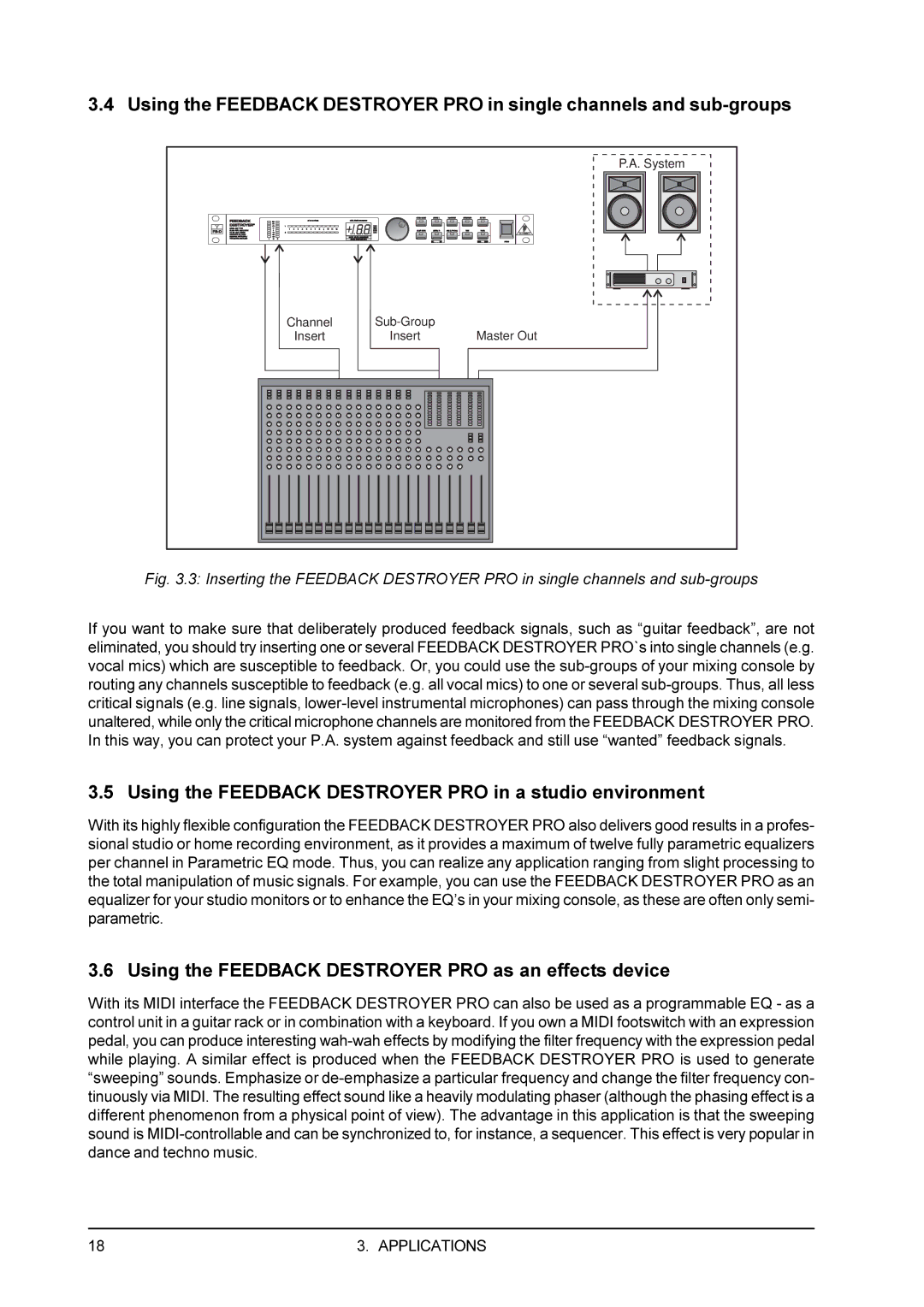
3.4 Using the FEEDBACK DESTROYER PRO in single channels and
|
| P.A. System |
Channel |
| |
Insert | Insert | Master Out |
Fig. 3.3: Inserting the FEEDBACK DESTROYER PRO in single channels and sub-groups
If you want to make sure that deliberately produced feedback signals, such as “guitar feedback”, are not eliminated, you should try inserting one or several FEEDBACK DESTROYER PRO`s into single channels (e.g. vocal mics) which are susceptible to feedback. Or, you could use the
3.5 Using the FEEDBACK DESTROYER PRO in a studio environment
With its highly flexible configuration the FEEDBACK DESTROYER PRO also delivers good results in a profes- sional studio or home recording environment, as it provides a maximum of twelve fully parametric equalizers per channel in Parametric EQ mode. Thus, you can realize any application ranging from slight processing to the total manipulation of music signals. For example, you can use the FEEDBACK DESTROYER PRO as an equalizer for your studio monitors or to enhance the EQ’s in your mixing console, as these are often only semi- parametric.
3.6 Using the FEEDBACK DESTROYER PRO as an effects device
With its MIDI interface the FEEDBACK DESTROYER PRO can also be used as a programmable EQ - as a control unit in a guitar rack or in combination with a keyboard. If you own a MIDI footswitch with an expression pedal, you can produce interesting
18 | 3. APPLICATIONS |
